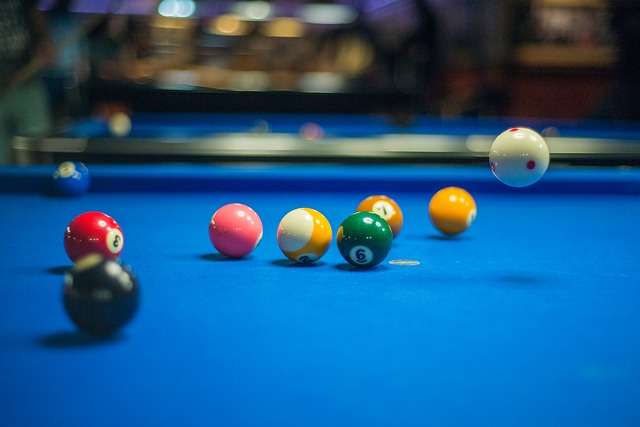The length of a pool cue is important because it affects the game. The average length of a pool cue is around 58-60 inches, but this can vary depending on the type of game you are playing.
When it comes to choosing the right length for your cue, there are two factors that you should consider: how much do you want to hit and how much room do you have to swing? If you want to hit more balls, then a longer cue is better because it provides more distance. If you have less space, then shorter cues are better because they require less effort to turn around.
The size of your pool table should also factor into your decision on what length your pool cue should be. A larger table requires longer cues in order to make sure that everyone has an equal chance at
The length of a pool cue is a question that lingers in the minds of many players. This question has been asked in various contexts and will continue to be asked as the game of pool becomes more popular.
This article discusses how long a pool cue should be and how it is determined. It also discusses what different types of cues are used for and their lengths.
Pool cues are a type of billiards equipment that is typically used to hit the cue ball and to pocket pool balls. There are many types of cues, including straight pool cues, jump cues and balkline cues.
Pool cues vary in length depending on the type of game they are used in, with most being between 24 inches (61 cm) and 29 inches (74 cm). The length of a pool cue is determined by how long it takes for the player’s arm to fully extend when shooting. Pool players typically use a cue between 27 inches (69 cm) and 31 inches (80 cm) long.
The length of a pool cue depends on what type of game it is used in, with most being between 24 inches (61 cm) and 29 inches (74 cm).
Is a longer pool cue better?
Pool cues are traditionally made from wood, but some people believe that there is a better option.
The benefit of a longer pool cue is that you can use it for more shots and it has more weight to it. However, the downside of a longer pool cue is that it costs more and takes up more space in your bag.
A longer pool cue also requires more skill to use effectively because you need to be able to control its weight accurately with your swing.
A longer pool cue is generally better than a shorter one. The length of the cue will not only allow you to hit more balls but it will also make a larger target for the ball to hit. However, there are some instances where a shorter pool cue is better than a longer one.
The main difference between these two types of cues is that the shorter ones are easier to control because they have less distance from the butt end of the stick to the tip of it, which allows for more precise shots.
The answer is yes. A longer pool cue will always be better than a shorter one.
A longer pool cue is more likely to hit the ball in the pocket, and it will give you more control over your game.
how to choose the right pool cue
Choosing the best pool cue is a difficult task. There are many things that you need to consider before making your purchase. This includes the type of pool cue, the player’s preference and their skill level.
The most important thing to consider when choosing a pool cue is whether or not you will be using it for recreational purposes or for playing in tournaments. If you are going to play in tournaments, then you should choose a heavier and more durable cue stick. However, if you are just playing for fun at home with friends, then it doesn’t matter as much what kind of weight your stick has.
There are also other factors that come into play when choosing a pool cue such as the price range, whether or not it has an included case and warranty and how heavy it
Choosing the right pool cue is not as easy as it seems. It is important to understand what type of player you are and what type of game you want to play.
There are different types of cues that one can choose from, but the most popular ones are wood, fiber, graphite, and aluminum. They each have their own benefits and drawbacks that make them suitable for different players.
One should also consider the weight of the cue, whether it is a standard or a heavy one. The size of the cue will also depend on your playing style.
To make sure that you get the best pool cue for your needs, it is important to ask around for recommendations or go through reviews before making a purchase.
Choosing the right pool cue can be difficult. There are a lot of factors to consider like style, material, weight, and size.
The first step is to decide what you are looking for in your cue. Is it designed for power or finesse? Do you want a straight or a curved shaft?
Once you have decided on what you need, it’s time to look at the different types of cues and their materials. You can then narrow down your options by checking out reviews from other players.


